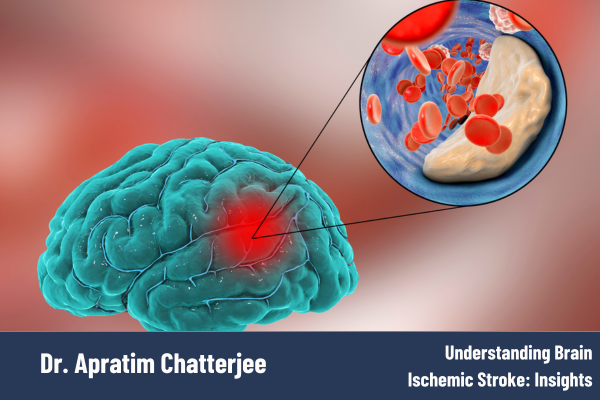Unveiling the Mysteries of Brain Ischemic Stroke
In the realm of neurological disorders, few conditions evoke as much concern and urgency as a brain ischemic stroke. The intricate network of blood vessels supplying oxygen and nutrients to the brain can be disrupted, leading to dire consequences. To navigate through the complexities of this condition, we turn to Dr. Apratim Chatterjee, a distinguished Neurologist and Stroke Specialist practicing in South Kolkata.
Understanding Brain Ischemic Stroke
Dr. Chatterjee elucidates that brain ischemic stroke occurs when a clot obstructs blood flow to a part of the brain, depriving it of oxygen and vital nutrients. This disruption can result from various factors, including atherosclerosis, atrial fibrillation, or thrombosis.
Recognizing the Signs
Early recognition of symptoms is paramount for timely intervention. Dr. Chatterjee highlights common indicators such as sudden weakness or numbness on one side of the body, difficulty speaking or understanding speech, and abrupt onset of severe headache.
Prevention and Treatment
While the repercussions of a brain ischemic stroke can be devastating, Dr. Chatterjee emphasizes the significance of preventive measures. Managing hypertension, and diabetes, and maintaining a healthy lifestyle can significantly reduce the risk. Additionally, prompt medical attention and interventions such as thrombolytic therapy can mitigate the damage caused by a stroke.
Empowering Through Knowledge
In the journey toward combating brain ischemic stroke, knowledge serves as our most potent weapon. Dr. Apratim Chatterjee’s insights illuminate the path, fostering awareness, and equipping individuals with the tools to safeguard their neurological health.
In conclusion, understanding the nuances of brain ischemic stroke empowers us to take proactive steps toward prevention and early intervention. With expertise and guidance from specialists like Dr. Apratim Chatterjee, we can navigate through the challenges posed by this formidable neurological condition.

